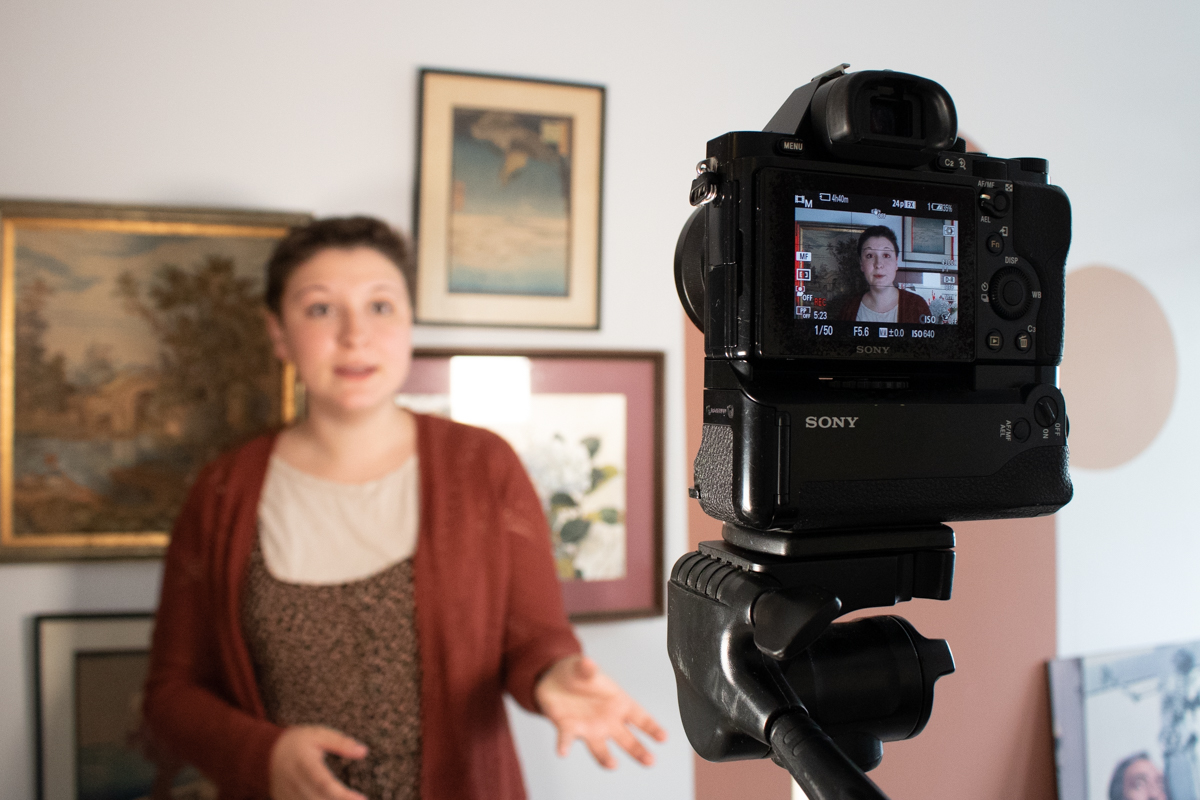Video Essayist Lily Alexandre makes videos to help mend our broken online conversations
Lily Alexandre started her YouTube channel almost 10 years ago and has been producing videos on and off ever since. After a brief break in her output, she decided to start her channel back up when she became concerned about her job opportunities, having left Dawson College before graduation. So, deciding to use YouTube as a way to show off her skills to possible employers, Alexandre put out her first video in the “video essay” format. To her surprise, the video went viral.
The video that sent her channel soaring was released in January of this year, titled “Millions of Dead Genders: A MOGAI Retrospective,” which details the mostly forgotten “MOGAI” (Marginalized Orientations, Gender Alignments, and Intersex) community of 2010s Tumblr. This community, Alexandre explains, was largely comprised of early-teenage kids aiming to navigate their queer identities and formulate new names to put on their often confusing feelings that they felt did not fit neatly into existing “LGBTQIA+” categories. While often ridiculed for their incessant “micro-labeling,” Alexandre approaches this community with a critical lens to discuss why queer youth gravitated towards this outlook despite how it may have been detrimental to the ongoing process of some people’s gender exploration. Alexandre didn’t realize that this video would strike a chord with audiences so quickly.
“I was at work one day, packing orders at a warehouse and my phone started suddenly blowing up,” Alexandre detailed. “It was super exciting but I also had no idea how to approach it because I had made hundreds of YouTube videos and never had an audience over a thousand people. So, suddenly there was a lot of expectation.”
Since then, Alexandre’s channel has grown to have nearly 20K subscribers, and has released four more videos this year averaging about 30 minutes each, mostly discussing issues in online gender discourse.
However, with this focus on controversial topics in queer identity, as well as her being a visible trans woman online, Alexandre has begun to feel the burden of representing her community, where marginalized creators often feel the need to be more perfect and controversy-free than their peers in order to escape backlash.
“I think in my case, and in the case of a lot of queer and trans creators, it’s specifically a thing where
people have seen that they can relate to what I have to say and very quickly have become super attached to me, and kind of assumed that they know who I am and what I stand for outside of these videos,” Alexandre explained. “So, if I say something that goes outside the bounds of their image of me, there can be a lot of backlash, because I feel that people have gotten attached to me as a person and the idea that I have to live up to their ideal.”
Much of Alexandre’s catalogue focuses on where online conversations go wrong, and how we can start to piece our conversations back together. In her most recent video, “Do ‘Binary Trans Women’ Even Exist? The Politics of Gender Conformity,” she details the false dichotomy between non-binary and binary trans people and how both sides claim they are the ones that are more oppressed. This whole argument, Alexandre argues in the video, is reductive to the core, as it places all trans people into one of two boats, erasing important nuances in personal experiences.
Alexandre’s videos show viewers how to be more generous with each other online. Alexandre jokes in her videos about simply “logging off” of toxic conversations online, but she believes that there is truth to this suggestion.
“I think just engaging with people face-to-face builds a lot more empathy than we have online. I’ve been trying to carry that empathy into my online interactions too,” she suggested. “If I see someone with a ‘take’ I think is bad […] that doesn’t make us enemies. This stuff is just a lot lower stakes than it feels online.”
When producing videos spanning difficult topics like gender identity and mental illness, Alexandre is still learning how to balance her work with her own mental wellbeing. She finds herself sometimes getting overwhelmed when putting together videos with such heavy content. However, over the past few months, she’s been learning how to deal with these uncertain moments.
“In those cases, it’s been helpful to remind myself why I’m writing the thing I am. It’s usually not just to talk about ‘Hey, this is really awful, let’s wallow in it.’ It’s usually directional, it’s usually for a purpose,” Alexandre explained. “Because I’ve talked mostly about things I feel do have stakes, and my takes might move the needle in the right direction.”
Looking to the future, Alexandre plans to step away from videos along the topic of gender identity to focus on other issues. Worried she may get pigeonholed, she plans on also creating videos about art, games, music, and other interests.
All in all, Alexandre wants her channel to be a place of discovery and empathy, no matter the topic of videos she puts out.
“I’m hoping there can be a space for talking about these big questions in a way that isn’t super partisan,” explained Alexandre. “And I hope it can be an empathetic place where people are interested in understanding each other more than they are about being correct or being superior.”
Photographs by Catherine Reynolds
